1.Identification
1.1 GHS Product identifier
| Product name | 3,5-xylenol |
|---|
1.2 Other means of identification
| Product number | - |
|---|---|
| Other names | 3,5-Dimethylphenol |
1.3 Recommended use of the chemical and restrictions on use
| Identified uses | For industry use only. Food additives -> Flavoring Agents |
|---|---|
| Uses advised against | no data available |
1.4 Supplier's details
| Company | MOLBASE (Shanghai) Biotechnology Co., Ltd. |
|---|---|
| Address | Floor 4 & 5, Building 12, No. 1001 North Qinzhou Road, Xuhui District, Shanghai, China |
| Telephone | +86(21)64956998 |
| Fax | +86(21)54365166 |
1.5 Emergency phone number
| Emergency phone number | +86-400-6021-666 |
|---|---|
| Service hours | Monday to Friday, 9am-5pm (Standard time zone: UTC/GMT +8 hours). |
2.Hazard identification
2.1 Classification of the substance or mixture
Acute toxicity - Oral, Category 3
Acute toxicity - Dermal, Category 3
Skin corrosion, Category 1B
2.2 GHS label elements, including precautionary statements
| Pictogram(s) | 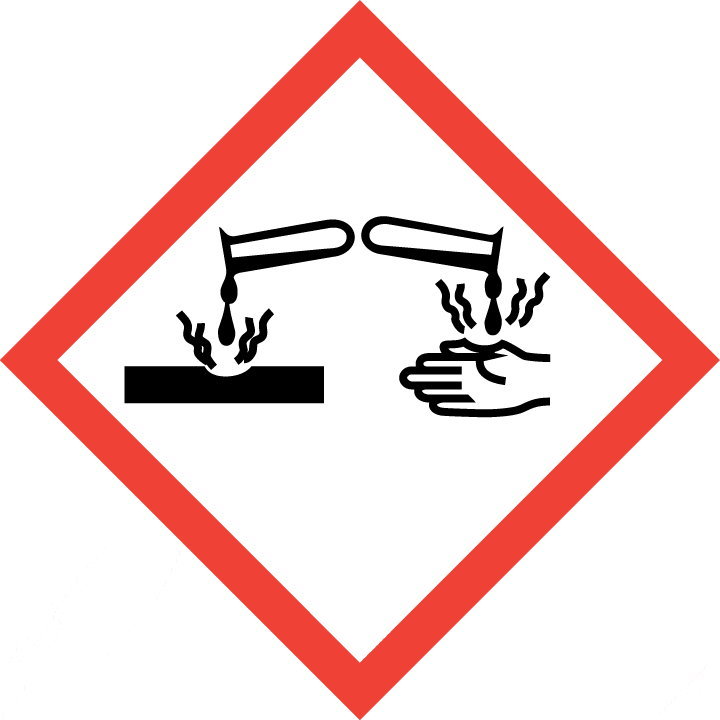 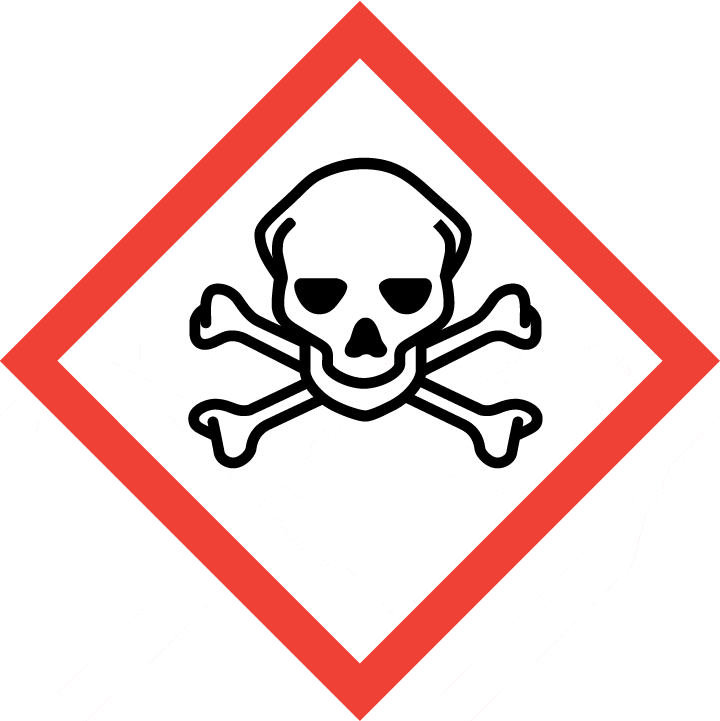 |
|---|---|
| Signal word | Danger |
| Hazard statement(s) | H301 Toxic if swallowed H311 Toxic in contact with skin H314 Causes severe skin burns and eye damage |
| Precautionary statement(s) | |
| Prevention | P264 Wash ... thoroughly after handling. P270 Do not eat, drink or smoke when using this product. P280 Wear protective gloves/protective clothing/eye protection/face protection. P260 Do not breathe dust/fume/gas/mist/vapours/spray. |
| Response | P301+P310 IF SWALLOWED: Immediately call a POISON CENTER/doctor/… P321 Specific treatment (see ... on this label). P330 Rinse mouth. P302+P352 IF ON SKIN: Wash with plenty of water/... P312 Call a POISON CENTER/doctor/…if you feel unwell. P361+P364 Take off immediately all contaminated clothing and wash it before reuse. P301+P330+P331 IF SWALLOWED: Rinse mouth. Do NOT induce vomiting. P303+P361+P353 IF ON SKIN (or hair): Take off immediately all contaminated clothing. Rinse skin with water [or shower]. P363 Wash contaminated clothing before reuse. P304+P340 IF INHALED: Remove person to fresh air and keep comfortable for breathing. P310 Immediately call a POISON CENTER/doctor/… P305+P351+P338 IF IN EYES: Rinse cautiously with water for several minutes. Remove contact lenses, if present and easy to do. Continue rinsing. |
| Storage | P405 Store locked up. |
| Disposal | P501 Dispose of contents/container to ... |
2.3 Other hazards which do not result in classification
none
3.Composition/information on ingredients
3.1 Substances
| Chemical name | Common names and synonyms | CAS number | EC number | Concentration |
|---|---|---|---|---|
| 3,5-xylenol | 3,5-xylenol | 108-68-9 | none | 100% |
4.First-aid measures
4.1 Description of necessary first-aid measures
General advice
Consult a physician. Show this safety data sheet to the doctor in attendance.
If inhaled
Fresh air, rest. Half-upright position. Artificial respiration may be needed. Refer for medical attention.
In case of skin contact
Wear protective gloves when administering first aid. Rinse and then wash skin with water and soap. Refer for medical attention .
In case of eye contact
First rinse with plenty of water for several minutes (remove contact lenses if easily possible), then refer for medical attention.
If swallowed
Rest. Do NOT induce vomiting. Refer for medical attention .
4.2 Most important symptoms/effects, acute and delayed
SYMPTOMS: Symptoms of exposure to this compound may include corrosion of the mucous membranes, upper respiratory tract, skin, and eyes; burning sensation, coughing, wheezing, laryngitis, and shortness of breath. Other symptoms may include severe irritation or burning of the eyes and skin; irritation of the respiratory system; dizziness, stomach pain, exhaustion, and coma. It can cause headaches, nausea, and vomiting. It can also cause dermatitis, muscular weakness, dimness of vision, irregular and rapid breathing, ringing in the ears, weak pulse, dyspnea, and unconsciousness. It can damage the kidneys, liver, pancreas, and spleen; and cause edema of the lungs. Inhalation may be fatal as a result of spasm, inflammation, and edema of the larynx and bronchi; chemical pneumonitis; and pulmonary edema. Chronic exposure can lead to digestive disturbances, nervous disorders, and skin eruptions. ACUTE/CHRONIC HAZARDS: This compound is highly toxic by inhalation, ingestion or skin absorption. It is corrosive and extremely destructive to tissue of the mucous membranes, upper respiratory tract, eyes and skin. When heated to decomposition it emits acrid smoke and toxic fumes of carbon monoxide and carbon dioxide.
4.3 Indication of immediate medical attention and special treatment needed, if necessary
Basic treatment: Establish a patent airway. Suction if necessary. Watch for signs of respiratory insufficiency and assist ventilations if necessary. Administer oxygen by nonrebreather mask at 10 to 15 L/min. Monitor for pulmonary edema and treat if necessary ... . Monitor for shock and treat if necessary ... . Anticipate seizures and treat if necessary ... . For eye contamination, flush eyes immediately with water. Irrigate each eye continuously with normal saline during transport ... . Administer activated charcoal ... . Dilution may be contraindicated because it may increase absorption. Do not use emetics ... . Cover skin burns with dry sterile dressings after decontamination ... . /Phenols and Related compounds/
5.Fire-fighting measures
5.1 Extinguishing media
Suitable extinguishing media
Fires involving this material can be controlled with a dry chemical, carbon dioxide or Halon extinguisher.
5.2 Specific hazards arising from the chemical
Flash point data for this chemical are not available. It is probably combustible.
5.3 Special protective actions for fire-fighters
Wear self-contained breathing apparatus for firefighting if necessary.
6.Accidental release measures
6.1 Personal precautions, protective equipment and emergency procedures
Use personal protective equipment. Avoid dust formation. Avoid breathing vapours, mist or gas. Ensure adequate ventilation. Evacuate personnel to safe areas. Avoid breathing dust. For personal protection see section 8.
6.2 Environmental precautions
Sweep spilled substance into covered sealable containers. Do NOT let this chemical enter the environment. Personal protection: chemical protection suit including self-contained breathing apparatus.
6.3 Methods and materials for containment and cleaning up
Pick up and arrange disposal. Sweep up and shovel. Keep in suitable, closed containers for disposal.
7.Handling and storage
7.1 Precautions for safe handling
Avoid contact with skin and eyes. Avoid formation of dust and aerosols. Avoid exposure - obtain special instructions before use.Provide appropriate exhaust ventilation at places where dust is formed. For precautions see section 2.2.
7.2 Conditions for safe storage, including any incompatibilities
Separated from acid anhydrides, acid chlorides, bases and oxidants.
8.Exposure controls/personal protection
8.1 Control parameters
Occupational Exposure limit values
no data available
Biological limit values
no data available
8.2 Appropriate engineering controls
Handle in accordance with good industrial hygiene and safety practice. Wash hands before breaks and at the end of workday.
8.3 Individual protection measures, such as personal protective equipment (PPE)
Eye/face protection
Safety glasses with side-shields conforming to EN166. Use equipment for eye protection tested and approved under appropriate government standards such as NIOSH (US) or EN 166(EU).
Skin protection
Wear impervious clothing. The type of protective equipment must be selected according to the concentration and amount of the dangerous substance at the specific workplace. Handle with gloves. Gloves must be inspected prior to use. Use proper glove removal technique(without touching glove's outer surface) to avoid skin contact with this product. Dispose of contaminated gloves after use in accordance with applicable laws and good laboratory practices. Wash and dry hands. The selected protective gloves have to satisfy the specifications of EU Directive 89/686/EEC and the standard EN 374 derived from it.
Respiratory protection
Wear dust mask when handling large quantities.
Thermal hazards
no data available
9.Physical and chemical properties
| Physical state | white to light beige |
|---|---|
| Colour | Needles from water |
| Odour | no data available |
| Melting point/ freezing point | 250°C(lit.) |
| Boiling point or initial boiling point and boiling range | 95°C/4mmHg(lit.) |
| Flammability | Combustible. |
| Lower and upper explosion limit / flammability limit | no data available |
| Flash point | 73°C(lit.) |
| Auto-ignition temperature | no data available |
| Decomposition temperature | no data available |
| pH | no data available |
| Kinematic viscosity | 2.42 mN.s.m-2 at 80°C |
| Solubility | In water:5.3 g/L (25 ºC) |
| Partition coefficient n-octanol/water (log value) | log Kow= 2.35 |
| Vapour pressure | 0.0712mmHg at 25°C |
| Density and/or relative density | 0.968 |
| Relative vapour density | (air = 1): 4.2 |
| Particle characteristics | no data available |
10.Stability and reactivity
10.1 Reactivity
no data available
10.2 Chemical stability
Stable under recommended storage conditions.
10.3 Possibility of hazardous reactions
Dust explosion possible if in powder or granular form, mixed with air.3,5-DIMETHYLPHENOL is incompatible with bases, acid chlorides, acid anhydrides, and oxidizing agents. It corrodes steel, brass, copper, and copper alloys.
10.4 Conditions to avoid
no data available
10.5 Incompatible materials
no data available
10.6 Hazardous decomposition products
When heated to decomp it emits acrid smoke and irritating fumes.
11.Toxicological information
Acute toxicity
- Oral: LD50 Rat oral 608 mg/kg
- Inhalation: no data available
- Dermal: no data available
Skin corrosion/irritation
no data available
Serious eye damage/irritation
no data available
Respiratory or skin sensitization
no data available
Germ cell mutagenicity
no data available
Carcinogenicity
no data available
Reproductive toxicity
no data available
STOT-single exposure
no data available
STOT-repeated exposure
no data available
Aspiration hazard
no data available
12.Ecological information
12.1 Toxicity
- Toxicity to fish: no data available
- Toxicity to daphnia and other aquatic invertebrates: no data available
- Toxicity to algae: no data available
- Toxicity to microorganisms: no data available
12.2 Persistence and degradability
ANAEROBIC DEGRADATION OF PHENOLIC COMPOUNDS TO METHANE AND CARBON DIOXIDE IN SEWAGE SLUDGE DIGESTION OCCURRED IN BOTH GROUND WATER AND LABORATORY DIGESTORS. WATER SAMPLES WERE COLLECTED FROM THE NEAR SURFACE GROUND WATER IN AN AREA CONTAMINATED WITH PLANT PROCESS WASTES RESULTING FROM OPERATION OF A COAL TAR DISTILLING AND WOOD TREATING PLANT. PHENOLIC COMPOUNDS (INCLUDING 3,5-DIMETHYLPHENOL) WERE ISOLATED FROM THE AQUEOUS SAMPLES BY DICHLOROMETHANE EXTRACTION.
12.3 Bioaccumulative potential
An estimated BCF of 36 was calculated for 3,5-dimethylphenol(SRC), using a log Kow of 2.35(1) and a regression-derived equation(2). According to a classification scheme(3), this BCF suggests the potential for bioconcentration in aquatic organisms is moderate.
12.4 Mobility in soil
The Koc of 3,5-dimethylphenol in soils with an organic carbon content <0.15% ranged from 460-1400; the Koc for 3,5-dimethylphenol in Dormont soil (organic carbon content = 1.5%) was determined to be 190(1). According to a classification scheme(2), these Koc values suggest that 3,5-dimethylphenol is expected to have moderate to low mobility in soil(SRC).
12.5 Other adverse effects
no data available
13.Disposal considerations
13.1 Disposal methods
Product
The material can be disposed of by removal to a licensed chemical destruction plant or by controlled incineration with flue gas scrubbing. Do not contaminate water, foodstuffs, feed or seed by storage or disposal. Do not discharge to sewer systems.
Contaminated packaging
Containers can be triply rinsed (or equivalent) and offered for recycling or reconditioning. Alternatively, the packaging can be punctured to make it unusable for other purposes and then be disposed of in a sanitary landfill. Controlled incineration with flue gas scrubbing is possible for combustible packaging materials.
14.Transport information
14.1 UN Number
| ADR/RID: UN2261 | IMDG: UN2261 | IATA: UN2261 |
14.2 UN Proper Shipping Name
| ADR/RID: XYLENOLS, SOLID |
| IMDG: XYLENOLS, SOLID |
| IATA: XYLENOLS, SOLID |
14.3 Transport hazard class(es)
| ADR/RID: 6.1 | IMDG: 6.1 | IATA: 6.1 |
14.4 Packing group, if applicable
| ADR/RID: II | IMDG: II | IATA: II |
14.5 Environmental hazards
| ADR/RID: no | IMDG: no | IATA: no |
14.6 Special precautions for user
no data available
14.7 Transport in bulk according to Annex II of MARPOL 73/78 and the IBC Code
no data available
15.Regulatory information
15.1 Safety, health and environmental regulations specific for the product in question
| Chemical name | Common names and synonyms | CAS number | EC number |
|---|---|---|---|
| 3,5-xylenol | 3,5-xylenol | 108-68-9 | none |
| European Inventory of Existing Commercial Chemical Substances (EINECS) | Listed. | ||
| EC Inventory | Listed. | ||
| United States Toxic Substances Control Act (TSCA) Inventory | Listed. | ||
| China Catalog of Hazardous chemicals 2015 | Listed. | ||
| New Zealand Inventory of Chemicals (NZIoC) | Listed. | ||
| Philippines Inventory of Chemicals and Chemical Substances (PICCS) | Listed. | ||
| Vietnam National Chemical Inventory | Not Listed. | ||
| Chinese Chemical Inventory of Existing Chemical Substances (China IECSC) | Listed. | ||
16.Other information
Information on revision
| Creation Date | Aug 10, 2017 |
|---|---|
| Revision Date | Aug 10, 2017 |
Abbreviations and acronyms
- CAS: Chemical Abstracts Service
- ADR: European Agreement concerning the International Carriage of Dangerous Goods by Road
- RID: Regulation concerning the International Carriage of Dangerous Goods by Rail
- IMDG: International Maritime Dangerous Goods
- IATA: International Air Transportation Association
- TWA: Time Weighted Average
- STEL: Short term exposure limit
- LC50: Lethal Concentration 50%
- LD50: Lethal Dose 50%
- EC50: Effective Concentration 50%
References
- IPCS - The International Chemical Safety Cards (ICSC), website: http://www.ilo.org/dyn/icsc/showcard.home
- HSDB - Hazardous Substances Data Bank, website: https://toxnet.nlm.nih.gov/newtoxnet/hsdb.htm
- IARC - International Agency for Research on Cancer, website: http://www.iarc.fr/
- eChemPortal - The Global Portal to Information on Chemical Substances by OECD, website: http://www.echemportal.org/echemportal/index?pageID=0&request_locale=en
- CAMEO Chemicals, website: http://cameochemicals.noaa.gov/search/simple
- ChemIDplus, website: http://chem.sis.nlm.nih.gov/chemidplus/chemidlite.jsp
- ERG - Emergency Response Guidebook by U.S. Department of Transportation, website: http://www.phmsa.dot.gov/hazmat/library/erg
- Germany GESTIS-database on hazard substance, website: http://www.dguv.de/ifa/gestis/gestis-stoffdatenbank/index-2.jsp
- ECHA - European Chemicals Agency, website: https://echa.europa.eu/
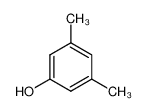





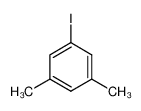

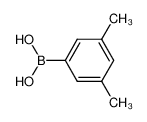


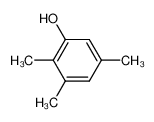
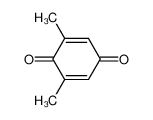





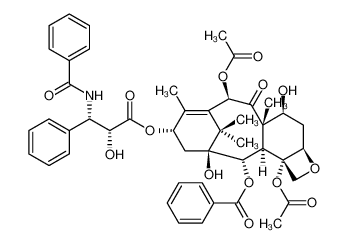
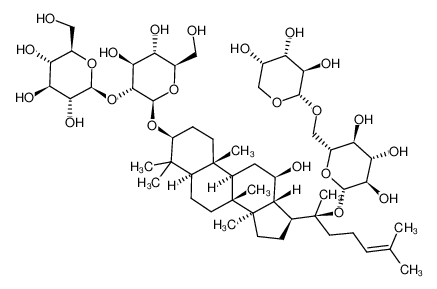
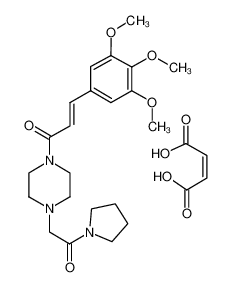
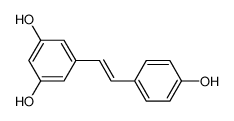

-
-

-
-
-

-
-
-
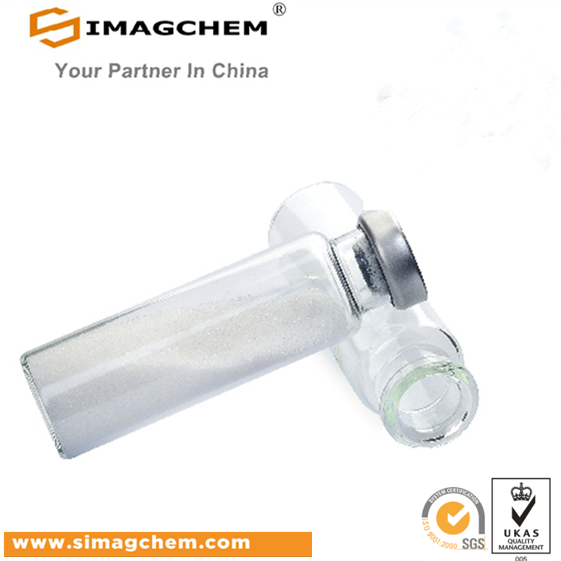
-
-
-

-
-
-

-
-
-

-
-
-

-
-
-
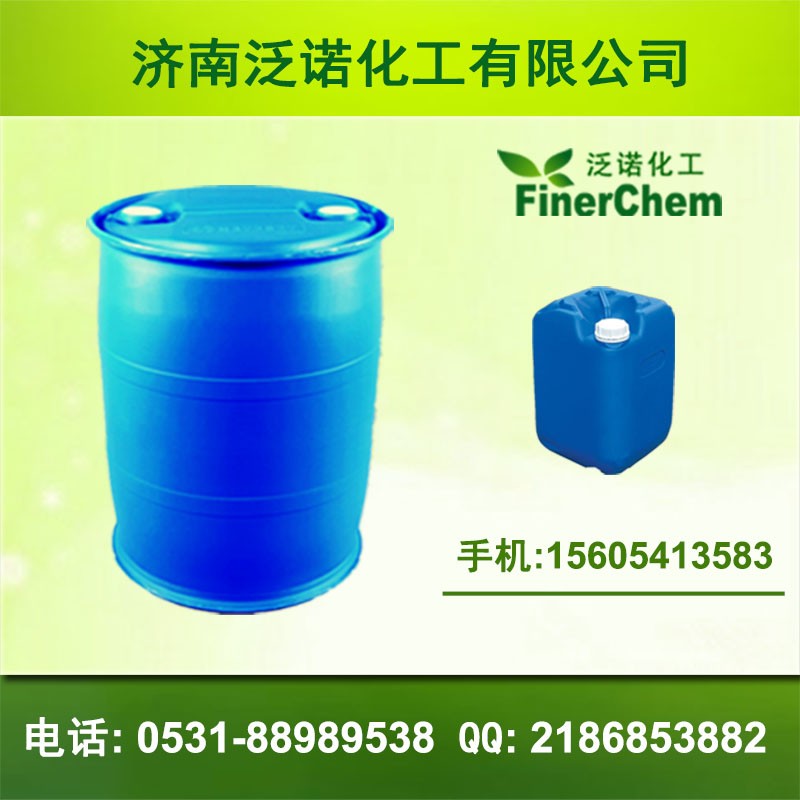
-
-
-
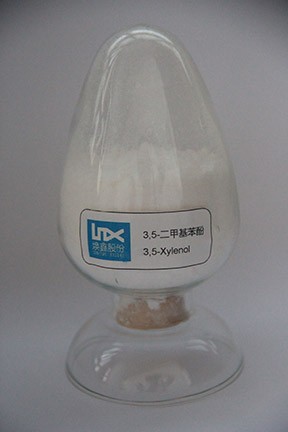
-
-
-

-
More Suppliers>>Wenzhou Win-Win Chemical Co., Ltd.
CHINA
Purity: 97%
Lead Time: 1 Week(s)
Price: -
Hangzhou J&H Chemical Co., Ltd.
CHINA
Purity: >97%
Lead Time: 7 Day(s)
Price: -
Xiamen Zhixin Chemical Co., Ltd.
CHINA
Purity: 99%
Lead Time: 3 Day(s)
Price: -
Skyrun Industrial Co., Limited
CHINA
Purity: 99%
Lead Time: 7 Day(s)
Price: -
Hangzhou DayangChem Co., Ltd
CHINA
Purity: 98%
Lead Time: 7 Day(s)
Price: -
Hangzhou Bingochem Co., Ltd.
CHINA
Purity: 98%
Lead Time: 7 Day(s)
Price: -
CHINA
Purity: 99%
Lead Time: Day(s)
Price: -
Jinan finer chemical Co., Ltd
CHINA
Purity: 98%
Lead Time: 2 Day(s)
Price: -
JIANGSU HUANXING NEWE MATERIAL CO.,LTD
CHINA
Purity: 98%
Lead Time: 15 Day(s)
Price: -
Jiangxi Jianglan Pure Biological Reagent Co., Ltd.
CHINA
Purity: 98%
Lead Time: 3 Day(s)
Price: Min $99 /g